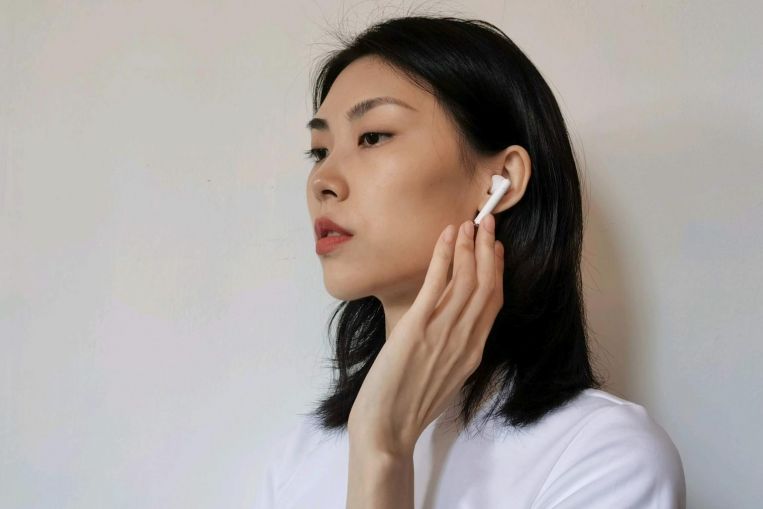Huawei FreeBuds 3 is the latest true wireless in-ear headphones to hit this increasingly saturated market.
The Chinese tech giant has clearly taken inspiration from the Apple AirPods, which ignited the genre. The FreeBuds 3 is almost a carbon copy of the AirPods in looks.
This is especially so with the all-white model, which is being reviewed here. It will also be available in all-black when it launches on Nov 30 at the Sitex 2019 consumer electronics fair.
There are slight visual differences from the AirPods though. The earbuds have a longer stem and a more bulbous in-ear section. Plus, this stem juts out more compared to that of the AirPods.
And unlike the “dental floss case” design of the AirPods’ charging case, the charging case of the FreeBuds 3 has a round profile, with a button on its side. It has a USB-C port at its bottom for charging and supports wireless charging too.
Like the AirPods, the FreeBuds 3 has an open-fit design, so it doesn’t have silicone ear tips to secure the earbuds in your ear canals. As a result, the FreeBuds 3 is super comfortable to wear, especially when it is so lightweight at 4.5g for each earbud.
However, it is the first with such open-fit design to have active noise cancellation (ANC). It comes with Huawei’s Kirin A1 chip and tap controls. By default, double tapping on the left earbud toggles the ANC on or off, while doing the same on the right earbud starts music playback or skips to the next track.
For this review, I paired the FreeBuds 3 with a Huawei Mate 20 Pro and a Samsung Galaxy Note9.
As you might expect, the most seamless pairing happens with a Huawei smartphone. This is especially so when you use the Huawei AI Life app (Android only) and when the phone runs Huawei’s latest EMUI 10 mobile operating system.
With this app and EMUI 10, it provides the same “Apple-like” pairing experience. Open the lid of the charging case with the earbuds inside, bring the case close to the Huawei smartphone and a window will appear on the phone. Tap on Connect on this window and the pairing is done.
Other benefits of using a supported Huawei smartphone include the availability of its own isochronous dual channel. This means each earbud is connected directly to the smartphone independently and simultaneously for lower latency. With other smartphones, only one earbud is connected directly.
If you are using it with other Android smartphones, you have to do the pairing the normal way – via the Bluetooth menu. But you can still use the AI Life app to customise the double-tap function.
In terms of audio quality, I find FreeBuds 3’s music output to be rather flat overall. The mids and highs are clear but lack rich details, while the bass lacks oomph.
I also find the ANC performance wanting. Perhaps, it is due to its open-fit design but it doesn’t block out a lot of ambient noise. Wearing the headphones while taking the MRT, I could hear the surroundings clearly even after setting the ambient noise reduction to maximum with the app.
Battery life is rated at four hours of playback, with the charging case adding another 16 hours. This is average compared to the competition.
At $238, it is around the same price as the entry-level AirPods. But for Huawei smartphone users, this might just be the “AirPods” they have been waiting for.
FOR
– Works best with supported Huawei smartphones
– Lightweight and comfortable
AGAINST
– Active noise cancellation needs improvement
– Flat audio output
TECH SPECS
Price: $238, available on Nov 30
Connectivity: Bluetooth 5.1
Weight: 4.5g (earbud), 48g (charging case)
RATING
Features: 4/5
Design: 3.5/5
Performance: 3/5
Battery life: 3/5
Value for money: 4/5
Overall: 3.5/5
Source: Read Full Article
